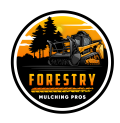Mulching is one of the most effective and essential practices in landscaping, offering long-term advantages for mulching in landscaping that benefit both the health and appearance of outdoor spaces. Whether you are maintaining a home garden, managing commercial landscapes, or improving agricultural fields, the right mulching techniques can enhance soil quality, conserve moisture, and suppress weeds. By using organic or inorganic mulch, property owners can create a thriving, low-maintenance landscape that supports plant growth and sustainability. These advantages of mulching for landscaping make it an essential practice for preserving soil health and ensuring a beautiful, resilient landscape.
Improves Soil Moisture Retention
One of the biggest advantages of mulching is its ability to retain soil moisture. By covering the soil with a protective layer, mulch reduces water evaporation, keeping the ground hydrated for longer periods. This is particularly beneficial during hot summer months when the sun can quickly dry out exposed soil. Proper moisture retention helps plants stay healthy and reduces the frequency of watering, making it an eco-friendly and cost-effective solution for landscape management.
Benefits of Mulching for Landscaping
One of the key benefits of mulching for landscaping is its ability to retain soil moisture effectively. By forming a protective layer over the soil, mulch helps reduce water evaporation, ensuring the ground remains hydrated for longer periods. This is especially important during hot summer months, when direct sunlight can quickly dry out exposed soil. Proper moisture retention promotes healthy plant growth, reduces the need for frequent watering, and enhances overall water conservation, making mulching an eco-friendly and cost-effective solution for sustainable landscape management.
Suppresses Weed Growth
Weeds compete with plants for nutrients, water, and sunlight, often hindering their growth. Mulch acts as a natural weed barrier by blocking sunlight from reaching weed seeds, preventing them from sprouting. Organic mulches, such as wood chips or straw, decompose over time and enrich the soil, further improving plant health while reducing the need for chemical herbicides. This makes mulching an excellent, natural way to keep unwanted weeds under control.
Regulates Soil Temperature
Mulching helps stabilize soil temperature, keeping it warm in the winter and cool in the summer. This insulation protects plant roots from extreme temperature fluctuations that can stress or even kill vegetation. In colder months, mulch acts as a blanket, preventing frost from penetrating deep into the soil. In hotter seasons, it shields the soil from excessive heat, reducing stress on plant roots and ensuring they thrive in various weather conditions.
Prevents Soil Erosion
Heavy rains, strong winds, and irrigation can erode exposed soil, washing away essential nutrients and leaving the ground unstable. Mulch provides a protective layer that reduces the impact of rainwater and prevents soil from being displaced. This is especially useful in sloped landscapes where erosion is more common. By keeping the soil in place, mulching helps maintain a stable and fertile growing environment.
Enhances Soil Fertility
Organic mulch, such as bark, leaves, and compost, gradually breaks down and decomposes, enriching the soil with essential nutrients. This natural process improves soil structure, enhances microbial activity, and increases the overall fertility of the ground. The addition of organic matter promotes healthier root growth, leading to stronger and more vibrant plants.
Boosts Plant Health and Growth
With better moisture retention, nutrient availability, and weed suppression, plants grown in mulched areas tend to be healthier and more resilient. The protective barrier also prevents soil compaction, allowing plant roots to expand more easily and absorb nutrients efficiently. Healthier plants mean fewer diseases, improved flowering, and higher crop yields in agricultural settings.
Adds Aesthetic Appeal to Landscapes
Beyond its functional benefits, mulch enhances the visual appeal of any landscape. Available in various colors and textures, mulch provides a polished and uniform look to gardens, pathways, and flower beds. Whether using natural wood chips, decorative gravel, or colored bark, mulching can complement the overall design of your outdoor space and create a neat, well-maintained appearance.
Promotes a Sustainable Landscaping Approach
Mulching contributes to eco-friendly landscaping by reducing water consumption, limiting chemical use, and improving soil health naturally. Using biodegradable materials such as grass clippings, straw, or shredded leaves helps recycle organic waste and minimizes the environmental impact of landscaping maintenance. Sustainable mulching practices support biodiversity by encouraging beneficial insects and microorganisms in the soil, creating a balanced and thriving ecosystem.
Reduces Maintenance and Saves Time
Maintaining a landscape can be time-consuming, but mulching significantly reduces the effort required. With fewer weeds, less watering, and improved soil conditions, property owners spend less time on repetitive landscaping tasks. By investing in proper mulching, homeowners and businesses can enjoy a beautiful, low-maintenance outdoor space without constant upkeep.
Final Thoughts
Mulching is a simple yet powerful technique that offers numerous benefits for landscaping, from improving soil health to enhancing visual appeal. With the expertise of forestry mulching pros, this method becomes even more effective in retaining moisture, preventing weeds, regulating temperature, and protecting against erosion. By utilizing professional forestry mulching techniques, property owners can support plant growth, create a more sustainable landscape, and ensure long-term success. Whether you are a homeowner, gardener, or land developer, working with forestry mulching pros can help you achieve healthier and more resilient outdoor spaces.

